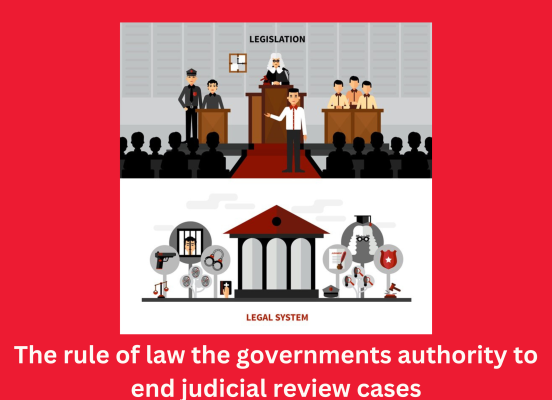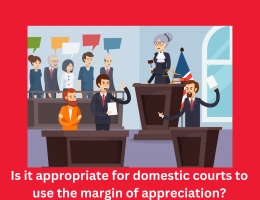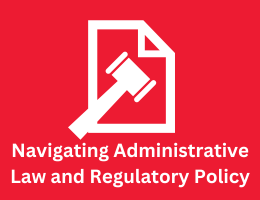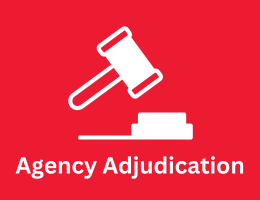
The rule of law the governments authority to end judicial review cases and the boundaries of political constitutionalism
- By admin --
- Wednesday, 03 Apr, 2024
For reasons of national security, a Tunisian man is prohibited from entering the UK, despite the fact that his British wife and kid reside there. He files a court review challenging that exclusion decision, but the government "terminates" the case. If that sounds like a nightmare out of Kafka, reconsider. In R (Ignaoua) v. Secretary of State for the Home Department EWHC 2512 (Admin), precisely that factual matrix was in question. In it, Cranston J. addressed the interpretation and implementation of a seemingly shocking statutory provision. According to Section 3, Paragraph 4 of the Justice and Security Act 2013, an authority to make orders granted under Section 19 of the Act
The Home Secretary, acting under the authority of an order made under paragraph 4, ordered the termination of the judicial review proceedings in this case. The conclusion is that instances such as these might be excluded from the High Court's inherent jurisdiction by the executive branch, leaving only the possibility of proceedings before the SIAC, which is empowered to hear evidence in such circumstances even in the event that the parties involved are not present.
Nestled among the tidbits of the Justice and Security Act, paragraph 4 of Schrödinger's work unearths some startling facts regarding the UK constitution. Paragraph 4 has the consequence of allowing the executive government to use the powers that Parliament has granted it to end judicial review proceedings in case it is accused of misusing its own power. There isn't a very good way to summarize a number of essential facts of the British constitution, such as parliamentary sovereignty, executive hegemony, and a shaky dedication to the separation of powers, all of which together significantly influence it.
Some startling facts about the UK constitution are revealed in Paragraph 4 of Sch 3—a passage tucked away in the Justice and Security Act. Paragraph 4 effectively grants the executive government the authority to end judicial review proceedings in if it is accused of misusing its own authority by exercising powers granted to it by Parliament. A number of essential facts regarding the British constitution, such as parliamentary sovereignty, executive predominance, and a hesitant dedication to the separation of powers, all of which together significantly influence it, are difficult to come up with in a more succinct manner.
The claimant's argument in Ignaoua, according to Cranston J., "could not be read as automatically terminating proceedings for judicial review in this type of case without further order of the court," was considered unsuccessful. Stated differently, the power of the executive branch to terminate judicial review procedures was upheld. (The claimant is contesting the Home Secretary's s. 15 decision to certify the case as one that must be heard by SIAC; the exercise of power under the para. 4 order being parasitic upon the lawfulness of the s. 15 certification.)
But this raises another question: is the forum that challenges such as the one in Ignaoua now have to be brought before it a suitable replacement for the High Court's judicial review process? Do the proceedings before the SIAC adhere to the rule of law? On this score, doubt could be entertained for two reasons. First and foremost, SIAC has the authority to conduct closed material processes, which means that only a portion of the case against the claimant would be known to him and his own legal counsel.
The most concerning part of this case, then, is that the High Court maintained the legitimacy of an executive decision to effectively reroute a petition for judicial review into a statutory mechanism, the sufficiency of which as a rule of law is still up for debate. In the end, it should come as no surprise that the court felt constrained by the "hard-edged" language of the law; Cranston J. said there was little to no space for interpretation. Of course, the possibility of such boxing-in is inevitable for as long as the doctrine of legislative supremacy is adhered to.However, this just serves to highlight the separate—though ultimately related—concern that it is legally reckless for Parliament to include a provision limiting access to judicial review in the statute book when it is not yet possible to assess how adequate the substitute statutory process is.
The other side of the parliamentary-sovereignty coin under a constitution as essentially political as the UK's is the political duty on the part of Parliament to exercise proper constitutional responsibility by making sure that both the executive branch and it uphold fundamental rule-of-law norms. It is a breach of duty to legislate in the manner that Parliament did when passing the pertinent sections of the Justice and Security Act. Thus, it serves as an example of how political constitutionalism, which prioritizes political self-control over outside legal supervision, is not always effective in promoting the rule of law. Whether or not this is a bad thing ultimately depends on your point of view.There will undoubtedly be those who contend that national security should take precedence over the constitutional rights of Tunisian asylum seekers. However, such a criticism is always off-target given that one of the goals of public law is to act as a shield between the person (regardless of popular opinion) and the power of the state.





